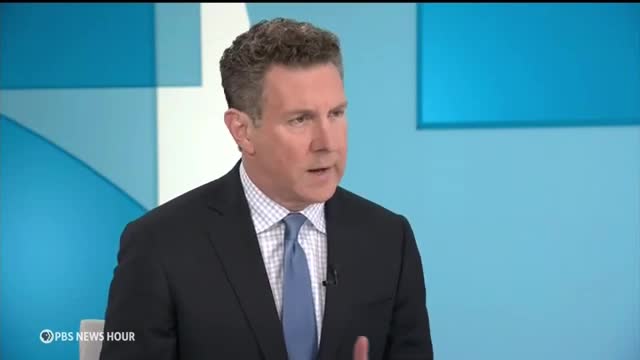Wildland firefighter reveals climate change's harsh reality
This article was created by AI summarizing key points discussed. AI makes mistakes, so for full details and context, please refer to the video of the full meeting. Please report any errors so we can fix them. Report an error »

In a recent government meeting, discussions centered on the contrasting approaches to climate change by current and potential future administrations, particularly focusing on Vice President Kamala Harris and former President Donald Trump.
Harris, who has been part of an administration that made significant strides in addressing climate change, has yet to outline specific policies for a potential Harris administration. Observers noted a tension in her promotion of both green energy initiatives and the U.S.'s booming oil and gas production. Critics argue that this dual focus undermines efforts to reduce greenhouse gas emissions, as the U.S. continues to position itself as a major energy supplier.
On the other hand, Trump’s stance on climate change remains skeptical. He has dismissed the issue as a significant threat and has proposed aggressive energy policies aimed at halving energy prices, which critics deem unrealistic given global market dynamics. Trump’s energy strategy includes expanding oil and gas drilling and rolling back environmental regulations, which he has suggested would benefit the fossil fuel industry financially. However, the feasibility of implementing such sweeping changes would depend on congressional support, particularly given that many Republican leaders have benefitted from federal funding for green initiatives.
As the climate debate intensifies in the lead-up to the elections, the meeting also highlighted the real-world implications of climate change through the experiences of wildland firefighters. Sarah Jacober, a firefighter with the U.S. Forest Service, shared insights into the increasing challenges posed by climate change, including longer and more intense wildfire seasons. Jacober emphasized the growing difficulty in controlling wildfires, attributing these changes to climate impacts that are widely recognized among her peers.
The discussions reflect a broader national conversation about climate policy and the urgent need for effective strategies to address the escalating consequences of climate change, as evidenced by the experiences of those on the front lines of environmental crises.
Harris, who has been part of an administration that made significant strides in addressing climate change, has yet to outline specific policies for a potential Harris administration. Observers noted a tension in her promotion of both green energy initiatives and the U.S.'s booming oil and gas production. Critics argue that this dual focus undermines efforts to reduce greenhouse gas emissions, as the U.S. continues to position itself as a major energy supplier.
On the other hand, Trump’s stance on climate change remains skeptical. He has dismissed the issue as a significant threat and has proposed aggressive energy policies aimed at halving energy prices, which critics deem unrealistic given global market dynamics. Trump’s energy strategy includes expanding oil and gas drilling and rolling back environmental regulations, which he has suggested would benefit the fossil fuel industry financially. However, the feasibility of implementing such sweeping changes would depend on congressional support, particularly given that many Republican leaders have benefitted from federal funding for green initiatives.
As the climate debate intensifies in the lead-up to the elections, the meeting also highlighted the real-world implications of climate change through the experiences of wildland firefighters. Sarah Jacober, a firefighter with the U.S. Forest Service, shared insights into the increasing challenges posed by climate change, including longer and more intense wildfire seasons. Jacober emphasized the growing difficulty in controlling wildfires, attributing these changes to climate impacts that are widely recognized among her peers.
The discussions reflect a broader national conversation about climate policy and the urgent need for effective strategies to address the escalating consequences of climate change, as evidenced by the experiences of those on the front lines of environmental crises.
View full meeting
This article is based on a recent meeting—watch the full video and explore the complete transcript for deeper insights into the discussion.
View full meeting